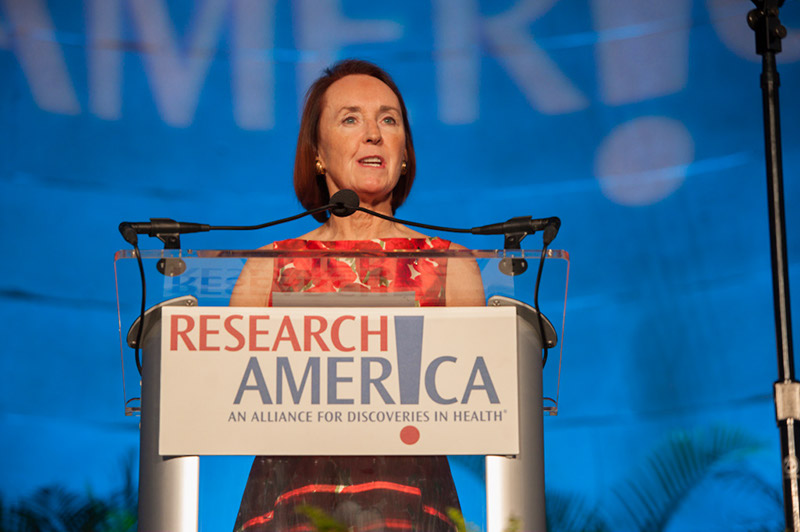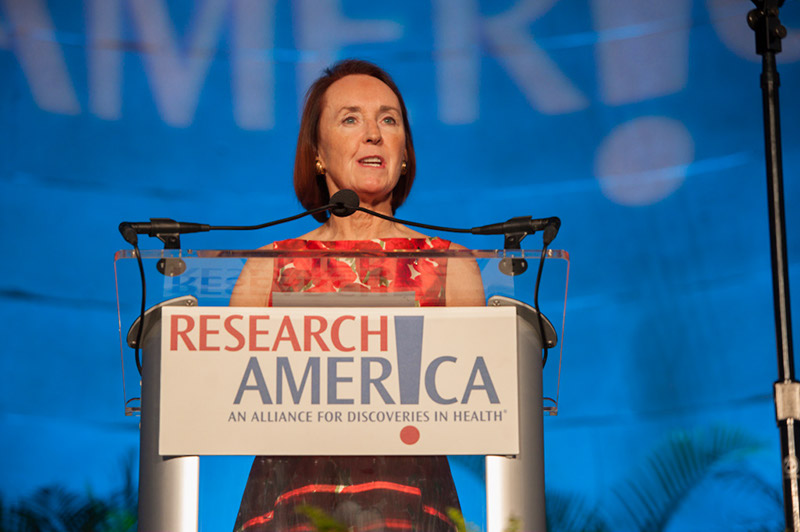Delays Hurt Us All


Dear Research Advocate:
As you know, there has been a cease fire in the shutdown and people are back to work, at least for now. Over the next two weeks, members of Congress will attempt to resolve the stalemate over funding for the President’s border wall, packaging it with the seven remaining FY 2019 spending bills, which include funding for the Food and Drug Administration (FDA) and the National Science Foundation (NSF).
I am feeling optimistic about a deal being struck, not least because Sen. Richard Shelby (R-AL), Chairman of the Senate Appropriations Committee, and Representative Nita Lowey (D-NY), Chairwoman of the House Appropriations Committee, are leading the congressional conference committee on the topic. They have an impressive track record of working together to find solutions to seemingly intractable challenges.
Chairs Shelby and Lowey are long-time champions of research. We are proud to be honoring them on March 13th at our advocacy awards event. In this press release, you can read in their words how much science matters to them. And please join us to salute them and other spectacular awardees.
Between now and March 13 — and more urgently, before February 15 — we must all help the Conference Committee succeed. Take action today and tell your elected officials — especially if they are members of the Conference Committee — that they must demonstrate resolve and forge a final package before February 15. Use this editable email to contact your Congressional delegation– make your voice heard!
We will be feeling the impact of the shutdown for some time. NSF has published telling information; seeing how many deadlines have been pushed back makes it clear that progress in science will be delayed. At least 12 new drug applications are waiting for review at the FDA, along with hundreds of generic drug applications and medical device applications. So, medical progress will be delayed. Demonstrating impact of another kind, the Congressional Budget Office (CBO) released a report stating the shutdown cost the economy $11 billion, with $3 billion that will not be recovered.
Also this week, the FDA was able to announce promising results from its ongoing Medical Device Safety Action Plan, which deploys modernized measures to improve safety while creating more efficient pathways to bring lifesaving devices to patients. One important piece of this strategy lies in mining the real world data that holds significant potential to reduce the time and cost associated with both the development and delivery phases of the R&D pipeline. As Commissioner Gottlieb said during a recent Bipartisan Policy Center forum on the topic, “It’s a recognition that new approaches and new technologies can help expand the sources of evidence that we use to make more reliable treatment decisions” (full recording here).
Outside of DC, the current measles outbreaks in Washington state and New York are terribly troubling. Both states face the highest number of measles cases in a generation. Measles, a highly contagious and dangerous virus, is easily preventable with a vaccine. Despite this well-established fact, a growing lack of trust (see a Research!America commissioned survey, which found a nearly 10 percent decline over the last decade) has driven exemption laws throughout the United States. Kudos to California, which ended its “personal belief exemption” in 2016 after a measles outbreak in Disneyland. The new state requirement survived a court challenge this summer. As misinformation grows and vaccination rates decrease, science/evidence must be bolstered by education and public policy. We have done it before — consider smoking and seat belt use as just two examples. We must continue to educate how vital vaccines truly are, and utilize public policy levers when necessary, to keep us all healthy. And we must support research for new vaccines.
Super Bowl Sunday is soon upon us. Fun fact: advertising for the Super Bowl costs $500M. That’s enough to fund universal flu vaccine research for the next 2.5 years. We can’t afford not to pay for more research.
Sincerely,
Mary Woolley




